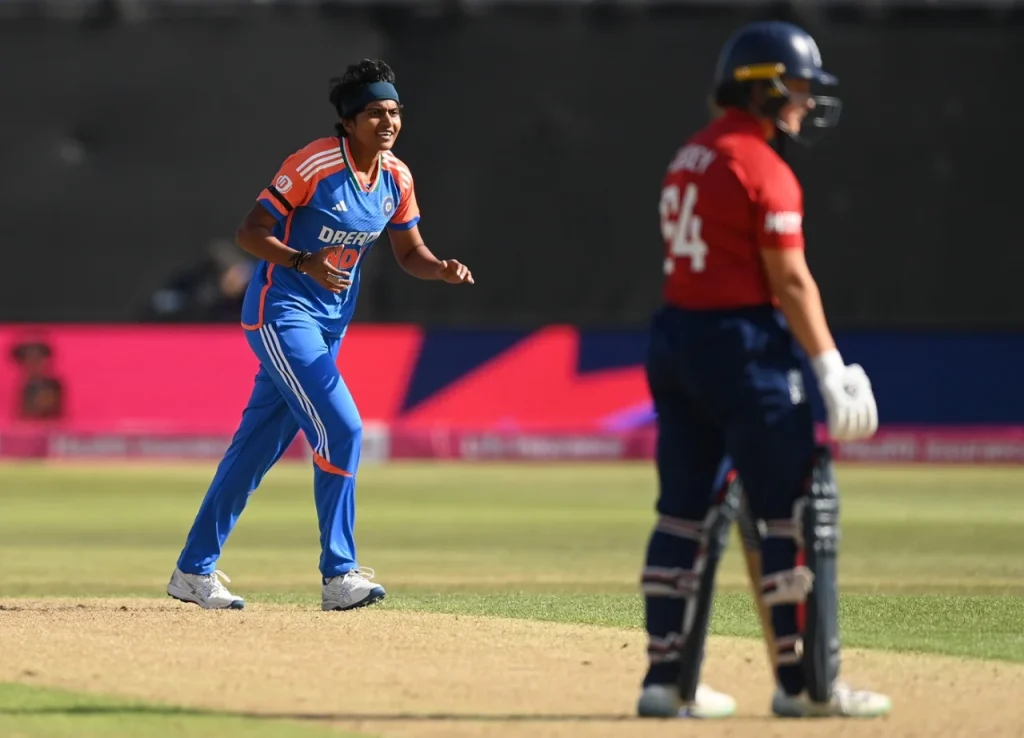
Trisha Ghosal in Birmingham
India’s resounding 97-run victory over England in the first T20I at Trent Bridge wasn’t just about Smriti Mandhana’s record-breaking century; it was a stark, almost prophetic, demonstration of the potent threat posed by their spinners. England’s batting line-up, chasing a mammoth 211, crumbled, with eight of their ten wickets falling to India’s spin quartet. This performance, spearheaded by debutant Shree Charani’s sensational 4/12, serves as a significant red flag for England—especially with the ODI World Cup scheduled to be held on Indian soil in just over 60 days.
Shree, the young left-arm spinner, was a revelation. Her figures of 4/12 are the second-best ever by an Indian woman on T20I debut—a testament to her control, variations, and ability to extract purchase from the surface. She consistently troubled England’s experienced batters, including the dangerous Nat Sciver-Brunt, whose valiant 66 was a lone beacon in a collapsing innings. Deepti Sharma and Radha Yadav also chipped in with crucial wickets, maintaining a tight stranglehold that never allowed England to build momentum.
England’s struggles against quality spin are not entirely new, but the comprehensive nature of this defeat should ring alarm bells. Batters seemed to lack a clear strategy, often failing to rotate strike or finding themselves tied down before attempting ambitious, ill-timed shots. The conditions in Nottingham, while not a rank turner, offered enough assistance for India’s spin-heavy attack to exploit England’s technical and tactical frailties.
This vulnerability takes on even greater significance when considering the upcoming ODI World Cup. The tournament, beginning September 30, will be co-hosted by India and Sri Lanka. Indian pitches are historically known for offering significant assistance to spinners as the game progresses, making precise and aggressive spin bowling a potent weapon. Teams aspiring for World Cup glory will need to master playing spin—not just survive it.
For England, the challenge is clear and immediate. They need to find ways to negate the turning ball—whether through improved footwork, strategic shot selection, or building partnerships against spin. Failure to adapt could see this T20I thrashing become a concerning prelude to their World Cup campaign, with the spin factor undoubtedly amplified on South Asian soil. The next T20I in Bristol isn’t just about salvaging the series; it’s a crucial opportunity for England to show they can learn and evolve before their ultimate challenge in India.



